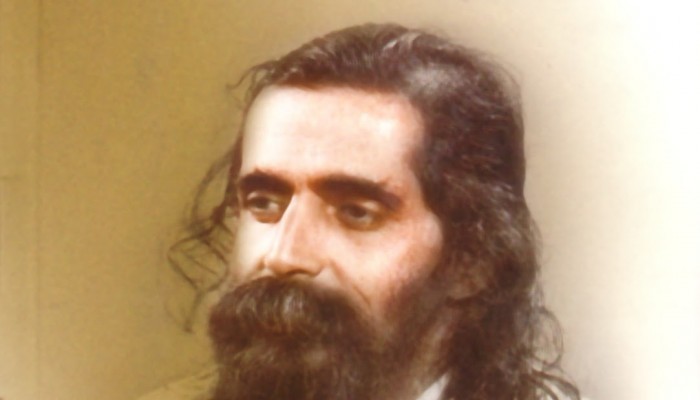Guruji Golwalkar’s Prescription for a Virile National Life
- In Society
- 02:48 PM, Jan 01, 2021
- Niraj Pareek
Note: This essay is the Twelfth part in the series of articles based on Guruji's Bunch of Thoughts.
The concept of ‘positive nationalism’ has been analyzed taking into consideration dharma and samskriti. Warning against the perils of appeasement for political purpose, he suggests to the non-Hindus to have a rashtra dharma (national responsibility), samaja dharma (duty to society), a kula dharma (duty to ancestors) and only in their vyakti dharma (personal faith) they can choose any path which satisfies their spiritual urge. Apart from that they should one with the national current to truly assimilate.
Dr. Keshav Baliram Hedgewar, founder of the Rashtriya Swayamsevak Sangh, was engrossed for several years in the revolutionary movement, initially by taking part in agitations and organizational work of the Indian National Congress. But soon he discovered that the underlying idea in all those movements was merely one of ousting the British. And that idea was equated with nationalism. For most of the leading men of those times, ‘anti-Britishism’ and ‘nationalism’ were interconvertible terms. Our founder felt dissatisfied with that superficial kind of thinking. He knew from a deep understanding of the history of our nation and also other nations that the concept of ‘nation’ was a positive one and was not based on antagonism to anyone else. And he also knew that the slightest distortion in the initial concept of the national goal would, in spite of the best intentions, ultimately lead us to irretrievable catastrophic results.
What, then is that true concept of our nationality? Let us start with stating and analyzing its concept as understood and practiced in the modern world, as that would help us appreciate the subject in the present context.
What Modern Scholars Say
How did the concept of a ‘nation’ first manifest itself in the West? To begin with, various groups of people delimited themselves within some sort of natural boundaries. The people residing in a particular territory developed a feeling that they were the sons of that soil, that they had their own way of life which they had to preserve and protect, and that their interests were not the same as those of other similar groups, and that, in short, they were a single, separate and distinct entity. If we collect the various expressions and definitions put forth by them and bring out their essence, we arrive at certain simple conclusions.
The first requisite for a nation is a contiguous piece of land delimited as far as possible by natural boundaries to serve as the substratum on which the nation has to live, grow and prosper. Then the second requisite is, the people living in that particular territory should have developed love and adoration for it as their motherland, as the place of their sustenance and prosperity. In short, they should feel that they are the children of that soil. Then, that people should not be just a mass of men, just a juxtaposition of heterogeneous individuals. They should have evolved a definite way of life moulded by community of life-ideals, of culture, of feelings, sentiments, faith and traditions.
Hindu – The Child of Bharat
If we apply this definition acknowledged by all the learned men in the world, to our own country, we find that this great country of ours, extending from the Himalayas in the north- with all its branches spreading north, south, east and west, and with the territories included in those great branches – right up to the Southern Ocean inclusive of the islands, is one great natural unit. As the child of this soil, our well evolved society has been living here for thousands of years. This society has been known, especially in modern times, as the Hindu society.
The common adoration for the motherland had made our people, in a way, related by blood to one another – from the man in Kashi to the man in Kanyakumari and from a forest dweller to a city-dweller. The various castes, the various ways of worshipping God, the various languages are all expressions of the one great homogeneous solid Hindu people – the children of this motherland.
Whenever, by mistake, we fought with one another, we lost the battle against the foreigners and all were reduced to abject slavery and misery. The case of Prithiviraj Chouhan is a case in point. His enemy was Mohammad Ghori. Jaychand made friends with Mohammad Ghori. The result was that Prithviraj was defeated and killed. Jaychand also was destroyed. Mohammad Ghori became the king. And the whole train of disasters over the last eight hundred years, and which in the present times has culminated in the partition, was set in motion. On the other hand, whenever we realized, even for a short period, that our interests were indivisible, that our friends and foes were alike to all of us, such immense power was generated in our national life that the power of foreigner lay shattered at our feet. Therefore, we say that in this land of ours, Bharat, the national life is of the Hindu people. In short, this is the Hindu nation.
Two Opposites Concur
But some of the so called ‘secularists’ of our country become ‘restless’ when they hear words like dharma and samskriti while discussing the concept of a ‘nation’. Swami Vivekananda, the great harbinger of our national renaissance in modern times, had time and again declared in unequivocal terms that this is Hindu nation and placed before us the great Hindu ideals of Guru Govind Singh and Chhatrapati Shivaji. In fact, he defined our nation as composed of those “whose hearts beat to the same spiritual tune.”
We thus say that our Hindu Nationhood is a truth, borne out by logic, experience and history. It is the supreme solid fact of our national life and not any fleeting ‘ism’ born out of political and economic theories or exigencies.
Not Nurture but Culture Counts
The mere fact of birth or nurture in a particular territory without a corresponding mental pattern, can never give a person the status of a national in that land. Mental allegiance has been, in fact, the universally accepted criterion for nationality.
The Bedrock of National Integration
Today we often hear our political leaders speaking of ‘national integration’, ‘emotional integration’ and so on. But what is that ‘common emotion’, that common basis on which all can come together? What is that eternal life-spring of our national life that make it unified, resurgent and glorious?
In the first place, the feeling of burning devotion to the land, which, from times immemorial, we have regarded as our sacred Matrubhoomi,
-in the second place, the feeling of fellowship, of fraternity, born out of the realization that we are the children of that one great common mother,
-in the third place, the intense awareness of a common current of national life, born out of a common culture and heritage, of common history and traditions, of common ideals and aspirations,
-this trinity of values or, in a word, Hindu Nationalism, forms the bedrock of our national edifice.
Image Source: Ennapadam Panchajanya







Comments